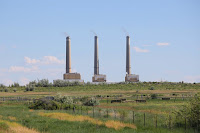In the 2015 international Paris Climate Agreement, nearly every country agreed to try and limit global warming to no more than 2 degrees Celsius (3.6 degrees Fahrenheit) and preferably closer to 1.5 degrees Celsius (2.7 degrees Fahrenheit) above pre-industrial temperatures. Achieving these goals will require dramatic changes, as the world has already warmed 1 degree Celsius (1.8 degrees Fahrenheit), and temperatures, fossil fuel consumption, and carbon pollution all are continuing to rise.
To determine how far off track emissions are with respect to the Paris goals, groups like the International Energy Agency and Climate Action Tracker evaluate each country’s climate policies. According to their analyses, were each country to follow through only with current policies, global temperatures would rise about 3 degrees Celsius (5.4 degrees Fahrenheit) above pre-industrial temperatures by the year 2100 – a level of warming that would result in severe and dangerous climate changes.
In addition, a new report produced by the United Nations Environment Programme, UNEP, and a coalition of research organizations takes a different approach: The report examines government plans for fossil fuel production and the amount of carbon pollution and global warming that would result if all these fuels were burned.
“Our collective failure to act early and hard on climate change means we now must deliver deep cuts to emissions”, UNEP Executive Director Inger Andersen said in a statement releasing the report. So urgent is the need for action, he said, that “every city, region, business, and individual need(s) to act now”.
The resulting picture is indeed bleak – total carbon emissions between now and 2030 from global fossil fuel production plans are about 10% higher than those from the current climate policies that would put the world on track for 3 degrees Celsius warming by 2100. These fossil fuel plans present a difficult impediment to meeting the Paris climate goals.
Read more at UN report: Pollution From Planned Fossil Fuel Production Would Overshoot Paris Climate Goals

UN report: Pollution From Planned Fossil Fuel Production Would Overshoot Paris Climate Goals
To protect the climate, most coal, oil, and natural gas must be left in the ground, a recent study reported.
